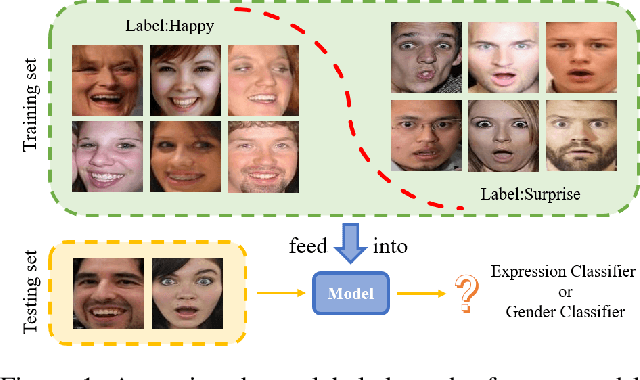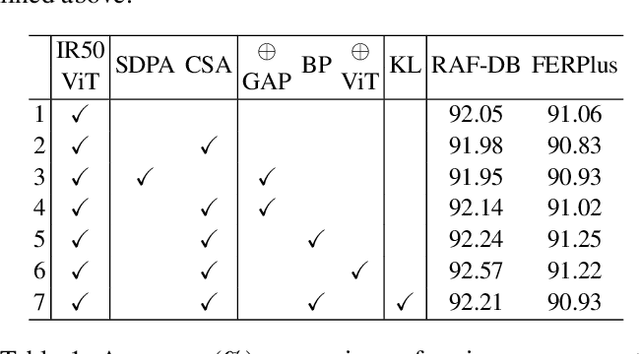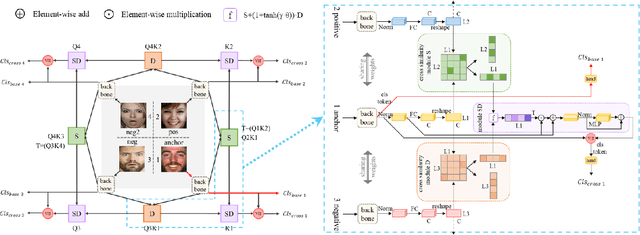Xuebin Lv
QCS:Feature Refining from Quadruplet Cross Similarity for Facial Expression Recognition
Nov 04, 2024



Abstract:On facial expression datasets with complex and numerous feature types, where the significance and dominance of labeled features are difficult to predict, facial expression recognition(FER) encounters the challenges of inter-class similarity and intra-class variances, making it difficult to mine effective features. We aim to solely leverage the feature similarity among facial samples to address this. We introduce the Cross Similarity Attention (CSA), an input-output position-sensitive attention mechanism that harnesses feature similarity across different images to compute the corresponding global spatial attention. Based on this, we propose a four-branch circular framework, called Quadruplet Cross Similarity (QCS), to extract discriminative features from the same class and eliminate redundant ones from different classes synchronously to refine cleaner features. The symmetry of the network ensures balanced and stable training and reduces the amount of CSA interaction matrix. Contrastive residual distillation is utilized to transfer the information learned in the cross module back to the base network. The cross-attention module exists during training, and only one base branch is retained during inference. our proposed QCS model outperforms state-of-the-art methods on several popular FER datasets, without requiring additional landmark information or other extra training data. The code is available at https://github.com/birdwcp/QCS.
Advancing Automated Knowledge Transfer in Evolutionary Multitasking via Large Language Models
Sep 06, 2024



Abstract:Evolutionary Multi-task Optimization (EMTO) is a paradigm that leverages knowledge transfer across simultaneously optimized tasks for enhanced search performance. To facilitate EMTO's performance, various knowledge transfer models have been developed for specific optimization tasks. However, designing these models often requires substantial expert knowledge. Recently, large language models (LLMs) have achieved remarkable success in autonomous programming, aiming to produce effective solvers for specific problems. In this work, a LLM-based optimization paradigm is introduced to establish an autonomous model factory for generating knowledge transfer models, ensuring effective and efficient knowledge transfer across various optimization tasks. To evaluate the performance of the proposed method, we conducted comprehensive empirical studies comparing the knowledge transfer model generated by the LLM with existing state-of-the-art knowledge transfer methods. The results demonstrate that the generated model is able to achieve superior or competitive performance against hand-crafted knowledge transfer models in terms of both efficiency and effectiveness.
 Add to Chrome
Add to Chrome Add to Firefox
Add to Firefox Add to Edge
Add to Edge